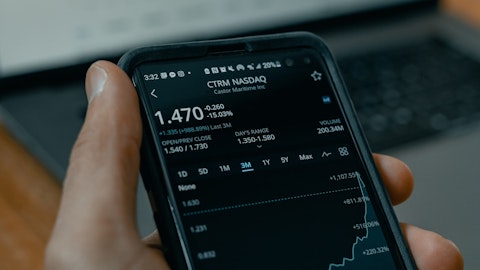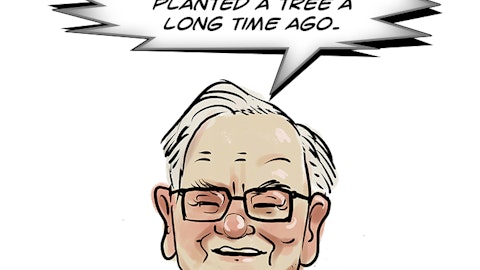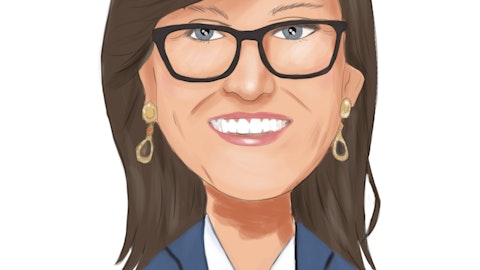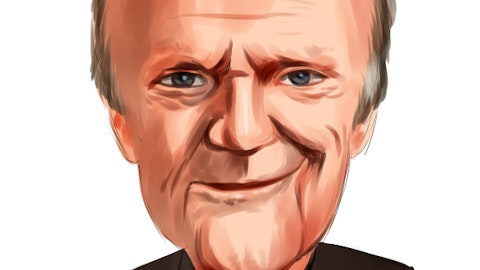1. Novo Nordisk A/S (NYSE:NVO)
Renaissance Technologies’ Stake Value: $2.04 billion
Percentage of Renaissance Technologies’ 13F Portfolio: 2.39%
Number of Hedge Fund Holders: 28
Novo Nordisk A/S (NYSE:NVO) is a Danish biopharmaceutical firm which is the global market leader in insulin treatments used for diabetes. It was the largest holding in the Q1 2022 portfolio of Jim Simons, with 18.38 million shares worth more than $2 billion and representing 2.39% of the billionaire’s total portfolio.
On May 12, Barclays analyst Emmanuel Papadakis maintained an ‘Overweight’ rating on Novo Nordisk A/S (NYSE:NVO) shares, and increased the price target to DKK 875 from DKK 850. The company shares have soared in 31.88% in the last 12 months as of May 20, and its future prospects look compelling as diabetes becomes a more prevalent disease around the world.
For the first quarter, Novo Nordisk A/S (NYSE:NVO) reported earnings per share of $0.88, exceeding consensus estimates by $0.06. Its quarterly revenue of $6 billion also beat market estimates by $464.2 million, and increased 9.93% year-on-year.
Out of all the hedge funds tracked by Insider Monkey, 28 held positions in Novo Nordisk A/S (NYSE:NVO) at the close of Q4 2021 with a collective price tag of $4.43 billion. In contrast, 27 hedge funds held $4.05 billion worth of positions in the company a quarter ago.
Investment firm LRT Capital Management talked about Novo Nordisk A/S (NYSE:NVO) in its Q4 2021 investor letter. The fund said:
“Novo Nordisk is the global leader in insulin, which is, sadly, a growing business as more and more people around the world suffer from diabetes. Millions of people need daily injections of insulin to stay alive, a number that, unfortunately, is likely to continue to grow by millions more in the coming decade. It may seem at first glance that insulin should be a commoditized business, after all, it was discovered and synthesized over a hundred years ago, but nothing could be further from the truth. There are many types of insulin and Novo Nordisk has spent billions on R&D over the years to develop new products. On February 11th, the company reported favorable results from a phase-3 trial of Semaglutide, a drug that is currently used for Type 2 diabetes treatment. The study evaluated the use of Semaglutide for weight loss treatment in non-diabetic patients and found a significant impact on weight loss for patients receiving Semaglutide vs. the placebo control group. If Semaglutide is approved for weight loss treatment, we expect it will be meaningfully accretive to the company’s bottom line.
The company’s proprietary product line supports returns on invested capital of over 40%, and while sales growth is relatively slow (+6% annualized CAGR over the past decade), the company’s shares trade at a reasonable valuation of only 22x forward earnings. For a company with an extremely predictable business, high returns on capital, and an easily forecastable future, we believe this to be highly attractive.”
You can also take a look at 20 Biggest One Hit Wonders of All Time and How Amazon Makes Money.





